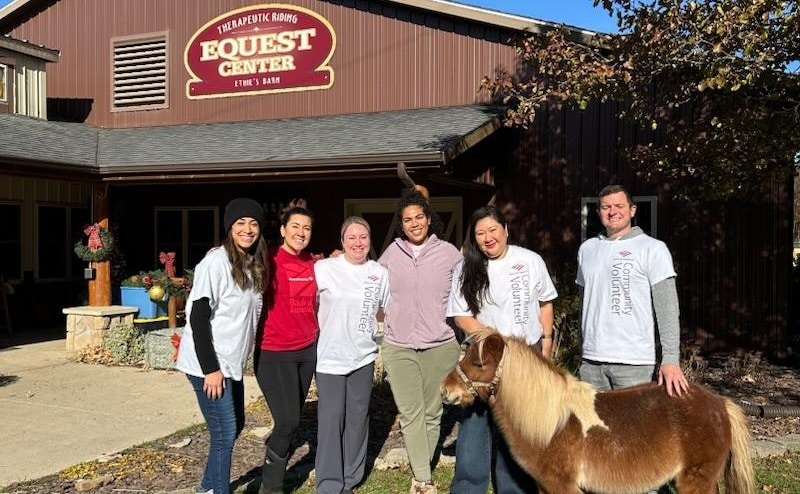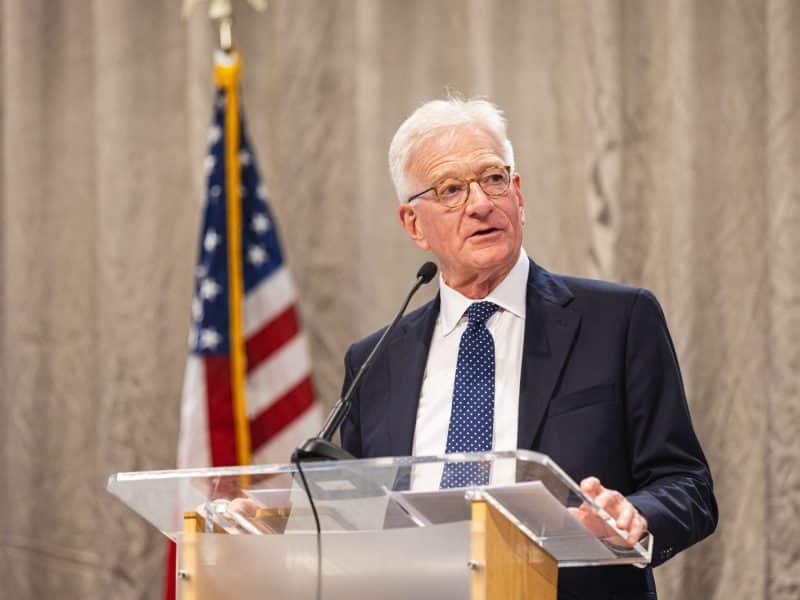Rapid Growth introduces new sister site, UIX Grand Rapids
The new Urban Innovation Exchange section will highlight the people and projects in West Michigan that truly spark social innovation with weekly features in addition to Rapid Growth Media's current coverage.
When it comes to sparking growth with innovative, social good, West Michigan consistently astounds. From the technology sector to community gardens, from group bicycle rides to business incubators, from small business to big name donors, Michigan’s Grand Valley is truly the fertile epicenter of growth and sustainable effort.
And to document these efforts, Rapid Growth Media brings you the new Urban Innovation Exchange section, highlighting the innovative people and projects transforming West Michigan.
David Rosen, president of the Kendall College of Art and Design and an early supporter of UIX, said he believes the section will act as a recipe book for others to “see, imitate, tinker, and improve and then share the results.”
“The act of recording and sharing aids not only the act of reproducing the activities and results, but of innovating them,” he said. “For instance, a recipe for bread allows anyone to make that bread, but it also allows for the creation of new breads with new ingredients, not just what gets added to the dough, but even the dough itself. If we are to mix, leaven, and bake our own bread and make enough to feed us all, we need many bakers and many ovens and many recipes to satisfy many needs and palates.”
That’s not to say the road to sustainability and a socially conscious culture is an easy one. Rosen said many of the systems used in the past toward this goal are not working so well in the present.
“Challenges abound,” he said. “We need to find a harmonious balance with the natural world and to create peace in our world that is meaningful and not just quiet. And, of course, we need to reinvigorate the great economic, social and political experiment that led to the creation of the United States, an idea built on the principle that in an open market for ideas and goods and with all given equal opportunities, merit would prevail and anyone would be able to rise in whatever field he or she pursued.”
Rosen believes in social innovation as a needed and necessary reshaping, advocated from such figures as 18th Century polymath and statesman Benjamin Franklin to educator and author Peter Drucker. He also believes that, along with innovation at the economic and political levels, social innovation has lagged. To boost it, he said, it’s important to note that social innovation “takes its impulse from the notion that tinkering, even in small ways, can produce results that lead to fundamental, although sometimes subtle, changes in how social and economic good circulates to all.”
And as an educator, Rosen finds social innovation to be core to his occupation. “In teaching, particularly in teaching the next generation of creatives, we help our students become more than receivers of ideas,” he said. “We help them become makers of knowledge, innovators who seek to impact their professions and their communities in positive ways. Did I not believe that my job was to improve the lives of others, I could not do my job or do it justice. So my work, my beliefs, and my actions link me to the idea of social innovation.”
Kim Dabbs, executive director of the West Michigan Center for Arts and Technology, and another fomenter of change through supporting UIX, said she believes social innovation is the foundation to building a strong and responsive community.
“Through a publication like UIX, we can all connect around amazing programs and projects in the region as well as gain inspiration to push us all farther in the way we live our daily lives,” Dabbs said.
After spending time in Metro-Detroit, Dabbs said she has enjoyed her return to Grand Rapids. “Seeing the transformation that the region has gone through because of people that are committed to social innovation and entrepreneurship was astounding to me,” she said. “Leading the West Michigan Center for Arts and Technology is an amazing honor and privilege. To be at the forefront of the social innovation movement carries the responsibility to serve our students, the community, and the field at large in a way that shares best practices, spreads new ideas and connects others to continue the momentum that has already been created.”
The existence of a section like UIX may beg the question, “why is innovation for the sake of meeting cultural needs necessary?” According to the Stanford Graduate School of Business’ Center for Social Innovation’s Professor Frank Flynn, as found in the book Happy Money: The Science of Smarter Spending, by Elizabeth Dunn and Michael Norton, “recent research on happiness suggests that the most satisfying way of using money is to invest in others.” And whether that takes on the form of donating to an international charity or buying a friend lunch, the resulting happiness is scalable from individuals to the employees of large corporations.
The research from Dunn and Norton shows the idea that “people derive more satisfaction spending money on others than they do spending it on themselves spans poor and rich countries alike, as well as income levels.”
Flynn also asserts that “giving generously to charities, friends, and coworkers — and even your country — may well be a productive means of increasing well-being and improving our lives.”
So why not capture snapshots of the gears that churn to create this sustainable good? As project editor for UIX, Grand Rapidian Matthew Russell hopes to do just that. As a journalist, designer, bicyclist, collective member and owner of Bartertown Diner, located at 6 Jefferson SE; founder of Wednesday Evening Cookies; and barista at The Sparrows Coffee, Tea, and Newsstand, located at 1035 Wealthy SE, Russell’s roots in the community have unearthed, and will lead to many more, stories about social innovation throughout West Michigan. Drop him a line, or story idea, at m.s.russell@gmail.com.
Look for UIX Grand Rapids in your inbox on Tuesday, October 1.
Photo by Adam Bird, artwork: Metaphorest by Tracy VanDuinen on the side of the Acton Institute Building











